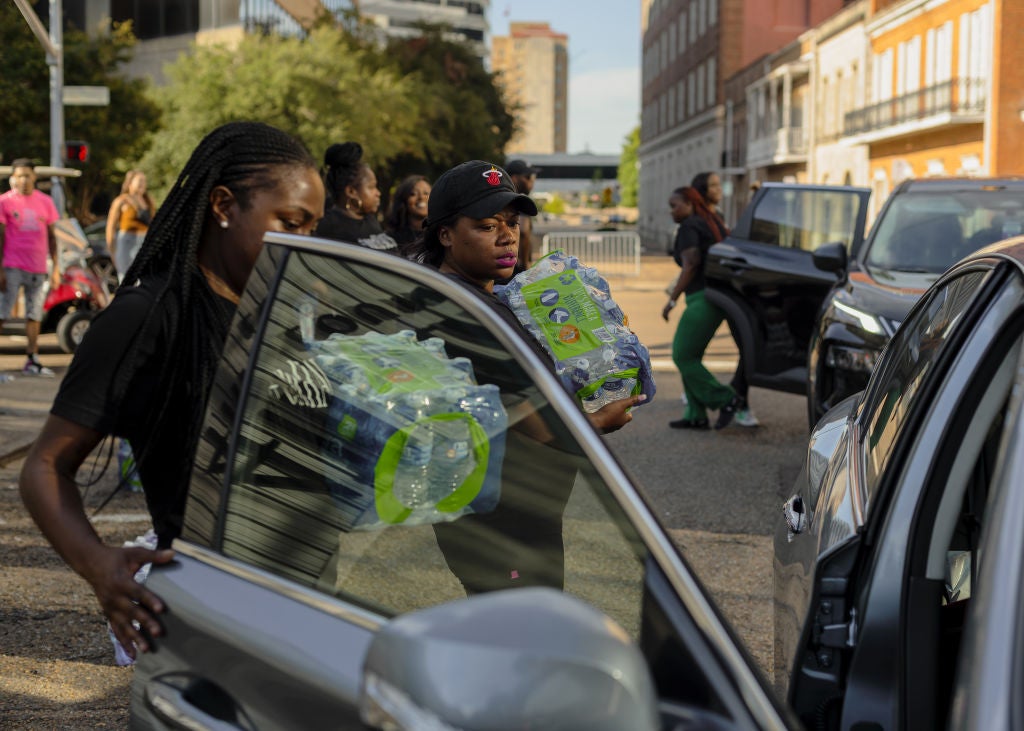
For decades, and arguably centuries, America has ironically become the self-proclaimed model of democracy, freedom, and safety. This sentiment has been embraced, popularized, and often quoted, even though the country has a long history of disregarding the needs of those who don’t look like the people in power. But for those of us in Mississippi, especially the almost 150,000 people in Jackson, our so-called democracy has not afforded us something that is supposed to be a basic human right: clean drinking water. People in Jackson, Mississippi are far from strangers of low water pressure, boil water notices, and most infuriating– being ignored by state government leaders.
Jackson, while now more than 80% Black, was once a thriving business hub with a much larger White population than it has today. After the Brown v. Board of Education ruling desegregated schools in Jackson, White families in the area left consistently for the next few years, effectively taking their tax base with them and therefore lessening the urgency surrounding issues that the city would soon face. This is a trend not unique to Jackson, but it is partially responsible for the city’s inevitable infrastructural, educational, and business breakdown.
Do not be confused, [Governor] Tate Reeves does not care because we are a majority Black city– not because he doesn’t have the capacity or influence.
For years, leaders of Jackson have been asking for financial assistance from the state’s legislature, while in 2020 Governor Tate Reeves flippantly suggested that Jackson focus on collecting water bill payments instead of asking the state for money first. So while many of his constituents struggled to flush their toilets, take baths, or have adequate water with which to cook for their children, the only advice he could offer was that more people pay bills for water they could not safely use or consistently expect to come out of the faucet at all. Do not be confused, Tate Reeves does not care because we are a majority Black city– not because he doesn’t have the capacity or influence.
In 2020, President Biden signed into effect the Infrastructure Investment and Jobs Act, which only two of Mississippi’s representation in Washington voted for despite the state’s desperate need of the appropriate funds. The bill provided over $400 million to Mississippi specifically for its water systems. Because these funds had to be spread across the state, it barely made a dent in the billions of dollars Jackson would need to fix its water woes.
We can’t ignore the efforts to weaken the political power of Black people in the state who are concentrated in Jackson and our Mississippi Delta region. Just this year, our 5th U.S. Circuit Court of Appeals upheld the Jim Crow era provision in our 1890 Constitution that bars those with specific felony convictions from being able to vote. Unsurprisingly, the majority of the people this affects are Black and brown. It keeps 10% of our state’s population out of the ballet box—something 19th century legislators explicitly stated was the goal of this provision. This kind of voter suppression means we can have governors like Tate Reeves who don’t truly represent the needs of people in a majority-Black city.
In 2020, the American Society of Civil Engineers gave Mississippi a D+ grade for the lack of maintenance and condition of its infrastructure. For many residents of Jackson, the D grade is generous, as many of them now have an added expense of collecting water to comfortably use in their homes instead of the water they have been paying for.
When the city’s most recent boil water notice went into effect, the residents of Jackson had no idea how long it would persist and the effects that the recent flood would have on a water plant already in need of repair. It has been over a month since that advisory was put up, and by the words of our city and state leaders, there is no end in sight– this is where I and other students from Jackson State University saw a gap that needed to be filled. There are many organizations across the city and state that have set up water distribution sites for people to drive up and collect water cases in their cars, but it begged the question, “What about the elderly, disabled, or folks without a car?” So our group of volunteers took matters in our own hands.
In just 24 hours of this idea’s inception, the Mississippi Student Water Crisis Advocacy Team was comprised of 20 team members, raised over $2,000 in donations, and gave out over 100 cases of water. Since then, the team has grown to 30, with more volunteers rolling in daily. We have raised over $5,000, hundreds of cases are being delivered, and thousands of residents are being impacted.
This is a testament to not only the persistence of students here in Jackson but of the critical need there was for the services we provide. As Mississippians, we unfortunately have a long history of self-reliance for the most basic needs and civil rights, and that tradition continues by young people in this area who look to the legacies and examples that were set for us long ago.
To support our student coalition, please visit our Instagram or Twitter accounts @msstudents4cwd where you can find our monetary donation information and volunteer sign up forms. For a longer list of organizations you can donate to, please visit here.
Maisie Brown is the Executive Coordinator of the ACLU of Mississippi and creator of the Student Water Crisis Advocacy Team. She can be reached across all social platforms at @MaisieBrownJxn.




